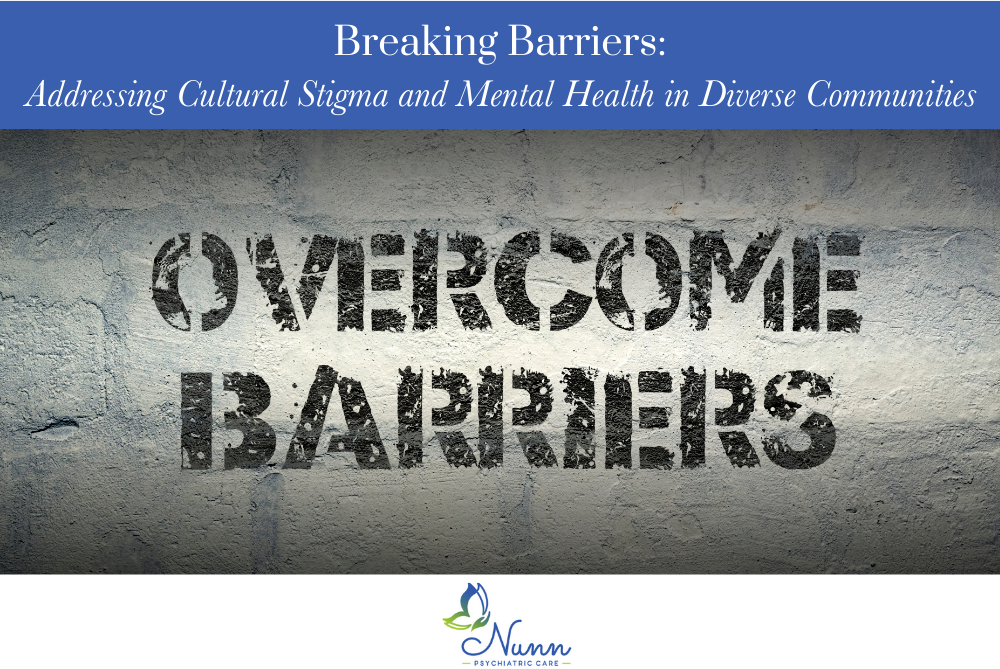
The Role of Culture in Mental Health
Culture deeply influences how individuals view mental health, illness, and healing. Beliefs about emotional well-being, family dynamics, and societal expectations vary widely among communities, shaping the way mental health is perceived and addressed.
In many diverse communities, mental health concerns are often misunderstood or dismissed altogether. Seeking help might be considered a sign of weakness, spiritual failure, or moral inadequacy. This stigma can discourage people from speaking openly about their struggles or from accessing necessary care.
Common Cultural Barriers to Mental Health Care
- Stigma and Shame: In some cultures, mental health conditions are associated with shame and dishonor. Individuals may fear being ostracized or labeled as “crazy.”
- Lack of Awareness: Mental health education may be limited, and symptoms can be misunderstood as simply stress, laziness, or poor character.
- Language and Communication Barriers: Language differences can make it challenging for patients to communicate their experiences or understand treatment plans.
- Mistrust of Healthcare Systems: Historical mistreatment or systemic inequality can lead to distrust of mental health providers.
- Preference for Informal Support Systems: Some cultures may rely more heavily on religious leaders, family elders, or traditional healing practices instead of medical professionals.
Why Addressing Stigma Matters
When stigma goes unchallenged, people suffer in silence. Cultural stigma can lead to:
- Delayed treatment or no treatment at all
- Higher rates of crisis-level mental health episodes
- Strained family and community relationships
- Unnecessary suffering and reduced quality of life
By raising awareness, providing culturally competent care, and normalizing conversations about mental health, we can begin to break down these harmful barriers.
Culturally Competent Care at Nunn Psychiatric Care
At Nunn Psychiatric Care, we prioritize cultural sensitivity in our mental health services. Our approach includes:
- Active Listening: We seek to understand each patient’s cultural context and personal experiences.
- Tailored Treatment Plans: We customize care to honor cultural values while addressing individual mental health needs.
- Collaborative Care: We work closely with families, community leaders, and other support systems when appropriate.
- Multicultural Education: Our providers continuously educate themselves on the nuances of various cultures and how they influence mental health.
Our goal is to build trust and offer compassionate care that respects each individual’s background and beliefs.
Frequently Asked Questions (FAQs)
Q: Why is mental health still taboo in many communities?
A: Mental health stigma is often rooted in cultural, religious, or historical beliefs that label mental illness as a weakness, a punishment, or something to be hidden. These stigmas are perpetuated by misinformation, fear, and a lack of open conversation.
Q: What are signs someone may need mental health support?
A: Common signs include persistent sadness, anxiety, mood swings, changes in sleep or appetite, withdrawal from loved ones, difficulty concentrating, or feelings of hopelessness. If you or someone you know is experiencing these symptoms, professional help can make a difference.
Q: How can I support a loved one who is hesitant to seek help due to cultural stigma?
A: Start with open, nonjudgmental conversations. Normalize therapy and mental health treatment by sharing information or personal stories. Offer to help them find a provider who respects their cultural background, such as the team at Nunn Psychiatric Care.
Q: What is culturally competent mental health care?
A: Culturally competent care refers to understanding and respecting a person’s cultural background and beliefs in the delivery of health services. It involves sensitivity to language, customs, and values while providing appropriate, individualized treatment.
Q: How can I overcome my own hesitation to seek mental health care?
A: Recognize that seeking help is a strength, not a weakness. At Nunn Psychiatric Care, we offer a confidential, compassionate space where you can explore your concerns without judgment. Our team will work with you to find a path to healing that aligns with your values.
Start Your Journey to Healing with Nunn Psychiatric Care
Cultural stigma should never be a barrier to mental well-being. At Nunn Psychiatric Care, we believe that mental health care is for everyone—and that healing starts with understanding.
Whether you’re struggling with anxiety, depression, trauma, or simply need someone to talk to, our team is here to help you feel heard, respected, and supported.
Contact Us Today:
📍 Nunn Psychiatric Care
113 Lincoln Dr
Hodgenville, KY 42748
📞 Phone: (270) 358-6221
Take the first step toward better mental health—no matter your background. We’re here to walk with you every step of the way.
